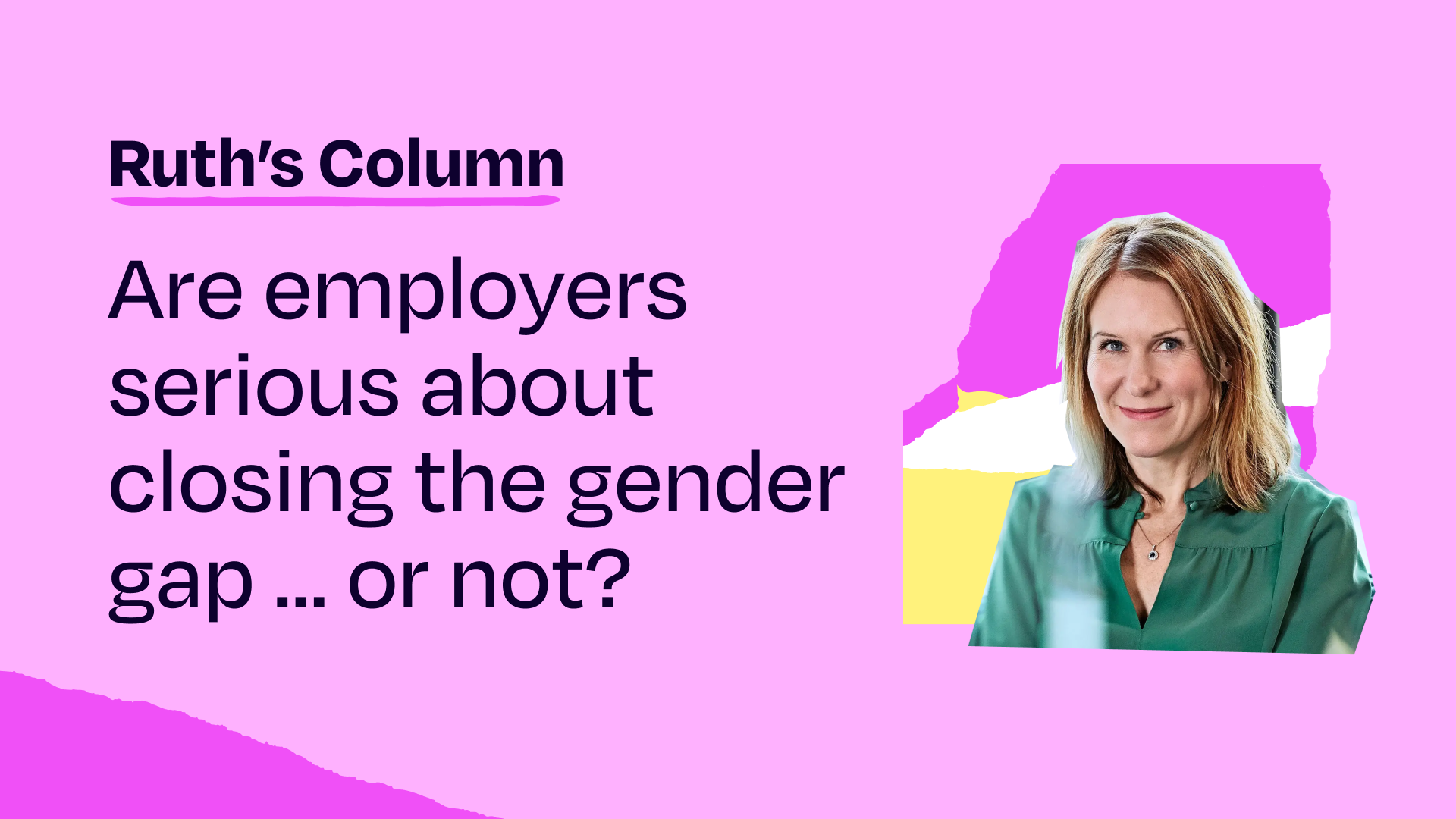Ruth Handcock – CEO, Octopus Money
Let’s face the reality of the gender gaps in the world of work and money: very little has changed.
Last week, a new report from the DWP confirmed what we already knew. Women are not only paid less than men, they’re also therefore retiring with pension pots a fraction the size – despite the fact that they are more likely to live longer. The data we see from employers is that men have 38% more in their pension on average.
Thankfully over the last few years, we’ve also collected the data we need to start to understand the problem. And there is no shortage of ideas and mentoring programmes that aim to facilitate female career progression. But I think there’s an angle that many employers have missed, which gets to the root of the gap.
When we examine the data, we find that the gender pension gap is at its narrowest when women are in their 30s. Once women reach their 40s their savings begin to fall behind their male counterparts. These are the same trends we see in the gender pay gap.
No surprises here. Women leave work or reduce their hours to focus on caregiving in all its forms, but primarily parenting. And their long-term financial health suffers as a result.
But what we also find is that women often haven’t talked about this. To anyone. And least of all, their (often male) boss. So they go into this period of their lives under-prepared and under-funded. The result is that less than a quarter (24%) of women go back to full-time after having children, and of that 24%, 79% end up leaving anyway due to not being able to maintain a full-time role alongside having a baby (according to research by That Works For Me).
So what needs to change?
#1 First things first, we need a fundamental culture shift where parenting is split more evenly between partners.
But this isn’t new news. Advocates have been saying this for years – and firms like Octopus have championed equal parental leave for just this reason. But while we fight for social and policy change, we clearly need more pragmatic solutions too.
#2 Women must start talking about this and planning their money much earlier in their careers.
This doesn’t mean deciding whether you want a family at age 22. But there are steps you can take in the first 2 decades of your working life that will create much more choice and security if and when you do decide to have a family. But hardly any of us understand this until it’s too late.
#3 If employers are serious about closing these gaps and retaining the high-performing women in their teams, they have a responsibility to help them plan ahead – and much earlier than most companies realise.
We need to get women talking about and planning for parenting. The current stigma means women planning for parenting can end up feeling “trapped” in their current role to qualify for maternity pay, can leave in search of a higher salary in a less inspiring role because they need to keep the family finances afloat, or can feel as if they can’t invest in the reliable childcare that allows them to keep progressing in their career.
This is why access to 1-to-1 money advice can be life-changing. When employers give women access to an impartial coach – especially one that’s had a similar life experience – they get a safe space to finally have that conversation. And to create a plan that empowers them to make the right decisions about their finances for them.
Some of the implications might surprise you. I recently learned of a member of ours called Holly who, at 25, decided to increase her pension contributions to get ahead of the pension gap she might face if she chose to take a career break. All as a result of one conversation she hadn’t felt comfortable having with anyone – until meeting her coach, Claire.
As long as the primary responsibility for caregiving falls on women, the earlier women need to plan for it. I think the biggest impact employers can have on retaining female talent into senior roles in their organisation is helping them plan for and through this period in their career, whatever their family choices. It’s no longer optional if you’re serious about diversity.
